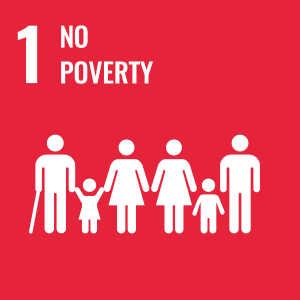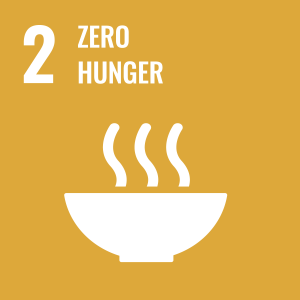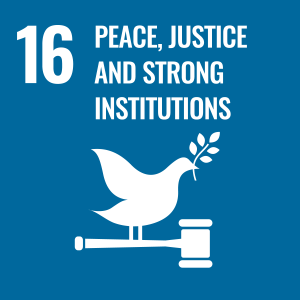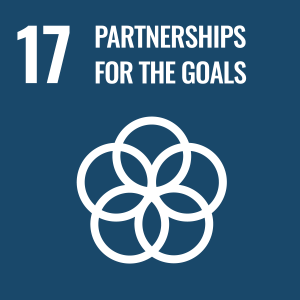
Dr Yanfei Hu
Academic and research departments
Institute for Sustainability, Centre for Social Innovation Management.About
Biography
I am Senior Lecturer (Associate Professor) in Sustainability & Innovation at the Surrey Business School and Sustainability Fellow at the Institute for Sustainability, University of Surrey. I hold a PhD in Business Administration, an MBA (both from the Ivey Business School, Western University, Canada), and a BA in Economics (University of International Business and Economics, Beijing). Prior to joining the academia, I worked for business media as journalist, section editor and project manager (including Dow Jones, Reuters and a Chinese national business newspaper) before moving to a corporate development role in the higher education sector (Chief representative, Beijing Office of Ivey Business School, Canada). For those roles I had been based in Beijing, Shanghai, Hong Kong and Toronto. Those diverse experiences had given me a broad perspective of businesses and the social and institutional environment they operate in, fuelling my interest in pursuing a career in management research and teaching.
News
In the media
ResearchResearch interests
My areas of expertise include sustainability, strategic management, organisation theory and qualitative research methods.
I am the principle investigator of a large ESRC grant (£286,000) titled “Cultural entrepreneurship in vegan meat markets”. The grant funds an international research project comprised of researchers from University of Surrey, Bayes Business School, Rotterdam School of Management and KU Leuven (Brussels), examining the cultural strategy of vegan meat entrepreneurs who create social value with disruptive food technologies. The grant also supports my development into a leader of large funded projects.
I am named "Mid-Career Researcher of the Year" (2023, Surrey Business School) for my research contributions and a significant pipeline examining organisational responses to climate change and other grand challenges.
My research is at the intersection of business and society; specifically, I’m interested in how organizations (both for profit and non-profit) engage with big societal problems. I primarily use the lens of institutional theory and social movements to approach my research questions, aiming to unpack the intriguing interplay between the socio-political environment and actions of organizational actors. I critically examine the intended and unintended outcomes of such interplays to provide theoretical and practical insights.
My research interests include:
- Institutional entrepreneurship: how organisations and individuals effect major change in contested issue domains. I'm especially interested in authoritarian contexts in which social or institutional entrepreneurs have to use subtle tactics to drive change.
- Social movements and new markets: how social movements create moral markets that engage in pro-social productions.
- Industry response to climate change: I am interested in net-zero transitioning strategies in a variety of industry sectors, with an aim of unpacking the dynamics and nuances of how deeply embedded industry actors respond to societal demands of radical change in business models and productions.
- CSR and governance
Awards
- "Mid-Career Researcher of the Year" (2023, Surrey Business School)
- Finalist, Best Paper on Environmental and Social Practices (ESP) 2017, Organization & Management Theory (OMT) Division, Academy of Management (AOM)
- Best Student Paper Award 2015, European Group for Organizational Studies (EGOS) - largest scholarly group in organisation studies with 2600 active members. The best student paper was selected from 70+ tracks of the annual Colloquium through three rounds of screening, and came with €2000 cash prize
Conference presentations
- Hu Y., Rerup, C, & Zietsma, C. Reflexivity in the “middle”: Conducting large-scale institutional work in repressive contexts. Presented at the Academy of Management (AOM) annual meeting, August 9-13, 2019, Boston.
- Hu Y., Rerup, C, & Zietsma, C. Institutional Interveners and Human Rights Development in Extreme Institutional Environments. Harvard Kennedy School SICI Conference on Rethinking Cross-Sector Social Innovation, April 5-7, 2018, Boston. http://sici.hks.harvard.edu/
- Hu, Y. A longitudinal view of negotiating dual legitimacies during institutional change. European Group of Organization Studies (EGOS) Colloquium, July 5-7, 2018 Tallinn, Estonia. https://www.egosnet.org/home
- Paper presentation. Hu, Y., & Rerup, C. 2017. “Mediating Human Rights-Based Change in an Authoritarian State”. Presented at the Academy of Management (AOM) annual meeting, August 4-8, 2017; this paper is also a Finalist, Best Paper on Environmental and Social Practices (ESP) 2017, Organization & Management Theory (OMT) Division, AOM.
- Hu, Y. “Social Movement Organizing: Robust Action in a Movement-Inhibiting Environment”. Presented at the American Sociological Association (ASA) annual meeting, August 10-15, 2017.
- Hu, Y. “Corporate Social Irresponsibility and Paradoxes of MNC Social Coordination”. Presented at the British Academy of Management (BAM) 2017 Conference, September 5-7, 2017
Research interests
My areas of expertise include sustainability, strategic management, organisation theory and qualitative research methods.
I am the principle investigator of a large ESRC grant (£286,000) titled “Cultural entrepreneurship in vegan meat markets”. The grant funds an international research project comprised of researchers from University of Surrey, Bayes Business School, Rotterdam School of Management and KU Leuven (Brussels), examining the cultural strategy of vegan meat entrepreneurs who create social value with disruptive food technologies. The grant also supports my development into a leader of large funded projects.
I am named "Mid-Career Researcher of the Year" (2023, Surrey Business School) for my research contributions and a significant pipeline examining organisational responses to climate change and other grand challenges.
My research is at the intersection of business and society; specifically, I’m interested in how organizations (both for profit and non-profit) engage with big societal problems. I primarily use the lens of institutional theory and social movements to approach my research questions, aiming to unpack the intriguing interplay between the socio-political environment and actions of organizational actors. I critically examine the intended and unintended outcomes of such interplays to provide theoretical and practical insights.
My research interests include:
- Institutional entrepreneurship: how organisations and individuals effect major change in contested issue domains. I'm especially interested in authoritarian contexts in which social or institutional entrepreneurs have to use subtle tactics to drive change.
- Social movements and new markets: how social movements create moral markets that engage in pro-social productions.
- Industry response to climate change: I am interested in net-zero transitioning strategies in a variety of industry sectors, with an aim of unpacking the dynamics and nuances of how deeply embedded industry actors respond to societal demands of radical change in business models and productions.
- CSR and governance
Awards
- "Mid-Career Researcher of the Year" (2023, Surrey Business School)
- Finalist, Best Paper on Environmental and Social Practices (ESP) 2017, Organization & Management Theory (OMT) Division, Academy of Management (AOM)
- Best Student Paper Award 2015, European Group for Organizational Studies (EGOS) - largest scholarly group in organisation studies with 2600 active members. The best student paper was selected from 70+ tracks of the annual Colloquium through three rounds of screening, and came with €2000 cash prize
Conference presentations
- Hu Y., Rerup, C, & Zietsma, C. Reflexivity in the “middle”: Conducting large-scale institutional work in repressive contexts. Presented at the Academy of Management (AOM) annual meeting, August 9-13, 2019, Boston.
- Hu Y., Rerup, C, & Zietsma, C. Institutional Interveners and Human Rights Development in Extreme Institutional Environments. Harvard Kennedy School SICI Conference on Rethinking Cross-Sector Social Innovation, April 5-7, 2018, Boston. http://sici.hks.harvard.edu/
- Hu, Y. A longitudinal view of negotiating dual legitimacies during institutional change. European Group of Organization Studies (EGOS) Colloquium, July 5-7, 2018 Tallinn, Estonia. https://www.egosnet.org/home
- Paper presentation. Hu, Y., & Rerup, C. 2017. “Mediating Human Rights-Based Change in an Authoritarian State”. Presented at the Academy of Management (AOM) annual meeting, August 4-8, 2017; this paper is also a Finalist, Best Paper on Environmental and Social Practices (ESP) 2017, Organization & Management Theory (OMT) Division, AOM.
- Hu, Y. “Social Movement Organizing: Robust Action in a Movement-Inhibiting Environment”. Presented at the American Sociological Association (ASA) annual meeting, August 10-15, 2017.
- Hu, Y. “Corporate Social Irresponsibility and Paradoxes of MNC Social Coordination”. Presented at the British Academy of Management (BAM) 2017 Conference, September 5-7, 2017
Supervision
Postgraduate research supervision
- As primary supervisor: Gianluigi Narciso (since 2022 January). With Prof Xavier Font. Project: Post-growth and Business Sustainability: an institutional perspective.
- As second supervisor: Estrela Antonio (since 2019), Massaran Traore Sarr (2021). With Prof Gavin Hilson. Their projects explore political and gender issues in African mining sectors.
- PhD completion: Titus Sauerwein (Oct 2022),
- I regularly serve as the examiner of PhD confirmations and PhD dissertation Viva. My expertise as an examiner lies in qualitative methodology and social, environmental and political issues in management and organisations.
- I serverd as a reviewer for Doctoral College PhD studentship in 2020, 2021, and 2022.
Postgraduate research supervision
Teaching
MAN1090 Business Ethics (large UG1 capstone module of 330-550 enrolled students; module leader since 2017)
MANM518 Sustainable Operations and Supply Chain Management (MBA & EMBA; module leader)
Personal tutor
Placement year tutor
Supervisor of Msc dissertations
Sustainable development goals
My research interests are related to the following:








Publications
Digital platform ecosystems have become pivotal organisational forms in the modern economy, facilitating entrepreneurial innovation while creating significant power asymmetries. This study examines how entrepreneurial firms, operating on innovation platforms, experience, react to, and manage their dependence on innovation platforms. Despite the mutual benefits of co-specialisation and technological enablement, the governance of these ecosystems often leads to constraints for participating firms and amplifies the challenges of power imbalance. Drawing on resource dependence theory, we investigate how app developers in the iOS App Store navigate power asymmetries with Apple. Through interviews with executives of successful app developers, we reveal intricate connections between experiencing power asymmetry or mutual dependence, negative or positive interpretations and emotions from such experiences, and their impact on developers’ (dis)engagement strategies as well as their passivity or proactivity in abiding the regulations imposed by the platform owner. Moreover, we show how privileged or perceived opportunities with the focal ecosystem tilt developers’ inclination towards engagement strategies by regulating their negative emotions. Our findings contribute to understanding power dynamics in innovation platforms, highlighting the role of emotions and interpretations in entrepreneurial strategies.
The literature suggests that international actors, including big philanthropies from the Global North, have influenced China's social policies during the country's transition from a Leninist state to a market-based economy. Yet, few empirical studies have revealed substantive mechanisms through which such influences were exerted. We propose that big philanthropists' policy influence in the Global South is often mediated by a process that we call " epistemic community cultivation " — purposeful programming to recruit local actors, train them in domain-specific knowledge and instil in them the normative ideas undergirding such knowledge. We unpack this process by tracing two programs implemented by the Ford Foundation's China Office in the 1990s and the 2000s, respectively. We reveal two layers of the process: 1) support in establishing an external linkage to international epistemic communities; and 2) assistance with building cohesion and solidarity within the newly created epistemic network. Local epistemic communities, once cultivated into existence, self-mobilize for policy influence. We contribute to a deeper understanding of policy transfer mechanisms, especially those of big philanthropies operating in the Global South.
Philanthropic foundations are important agents of global policy transfer. While scholars have explored foundations’ policy roles in a range of contexts, we know relatively little about how they transfer policies and instigate institutional change under rigid authoritari- anism – fields in which the state maintains centralized control and excludes other actors. This paper seeks to bridge this gap through analysis of a case study of the Ford Foundation’s grantmaking in the Chinese family planning field during a period of rigid authoritarian control (1991-2005). We find the Foundation stimulated the transfer of the Western “reproductive health” policy through two mechanisms: 1) incentivising elite researchers to conduct scientific research on rural women that was previously left “undone”; and 2) partnering with peripheral state actors for localised experimentations and gradually gaining access to central policymakers to encourage national policy inno- vation. We also discuss the contingencies and ambivalences of the Foundation’s influence under rigid authoritarianism.
Hybridity is the combination of different belief systems (institutional logics) that guide organ-isational practice. We analyse 32 decarbonisation business plans of tour operators to study the interplay between the market logic (incumbent) that supports the pursuit of continuous economic expansion, and the post-growth logic (challenger) that rejects the idea of unbridled growth. Through a mixed-method approach that combines content analysis and regression modelling, we find that the configurations of hybridity (i.e., the exact ways in which logics are combined) influence organisations' abilities to adopt science-based decarbonisation. We identify eight distinct transition patterns in the embedding of post-growth thinking into business plans that support a new theorisation of post-growth as a process of hybridisation.
Countries that have ratified the Minamata Convention on Mercury, a United Nations-backed international treaty designed to protect human health and the environment from releases of mercury and mercury compounds, are required to produce a National Action Plan (NAP). Each must state, very clearly, how the mercury being used at artisanal and small-scale gold mines will be phased out. In most areas of sub-Saharan Africa, however, devising a comprehensive NAP promises to be an enormous and indeed, challenging, undertaking. Here, the institutional capacity and resources, expertise and at times, commitment needed to capture the level of detail the Minamata Secretariat expects to be included in each NAP are woefully lacking. One of the more challenging tasks ahead, given the shortage of hard data available on the sector’s populations, production and activities, promises to be the design and implementation of appropriate educational, communication and support-related strategies for the ‘vulnerable populations’ who rely on work at artisanal and small-scale gold mines for their incomes. This is especially significant for women, who, despite accounting for at least 50 percent of the region’s artisanal and small-gold mine workforce, mostly carry out the manual work at the lower tiers of the sector’s labour hierarchies. Taking stock of this largely ‘invisible’ work and the circumstances driving individuals to pursue employment in this sector in the first place, this paper reflects critically on the challenges with reducing women’s exposure to mercury at artisanal and small-scale gold mines in sub-Saharan Africa. It draws on findings from ongoing research in Ghana, the location of one of the largest and most dynamic artisanal and small-scale gold mining sectors in the region.
Institutional change is a key topic in organization study, but we know surprisingly little about how such change unfolds in change-resistant authoritarian countries. We use a historical study of the efforts by an international non-governmental organization, the Ford Foundation, to mediate human rights-based change in China. Mediated change is the process through which a mediator uses subtle tactics to broker values and practices from one social world to another. We find that mediated change involves tactics that reduce local actors’ institutional embeddedness in authoritarianism (e.g., disembedding tactics), and tactics that enhance local actors’ embeddedness in rights-based values and practices (e.g., embedding tactics). Overall, the study not only demonstrates the importance of accounting for mediated institutional change processes, but also reveals new insights into under-theorized aspects of the paradox of embedded agency.
This paper contributes to the debate on formalization of artisanal and small-scale mining (ASM) – low-tech, labour-intensive mineral extraction and processing – in sub-Saharan Africa, drawing on fresh insights from Ghana. In the early-1990 s, with support from GTZ, the German technical arm, Ghana implemented its Small-Scale Mining Project (SSMP), an institutional framework designed specifically to facilitate legalization of, and administer assistance to, ASM. Whilst at the time of its launch, the SSMP was lauded in donor circles as a best practice governance structure for formalizing ASM in sub-Saharan Africa, its existence was short-lived because of poor planning, uncoordinated execution, and a general lack of commitment on the part of government and donors to fulfilling its objectives. The institutional, policy and regulatory framework that has emerged in its place has stifled formalization of the sector by introducing a number of barriers that have prevented operators from legalizing their activities and accessing crucial support services. Ghana’s small-scale miners have long called for the implementation of a more operator-friendly licensing apparatus and support structure, although it is becoming increasingly evident that such change is unlikely to happen without an unprecedented intervention. This, however, may be supplied in the form of the Community Mining Scheme (CMS), launched by Ghana’s senior government officials in 2019 in a bid to ringfence specific areas for licensed ASM. Wide adoption of the CMS promises to transform the governance of ASM in Ghana into a more operator-friendly and efficient process by engaging local government units hitherto marginalized in the sector’s formalization process; (re)establishing a decentralized platform donors desperately covet to implement projects with greater precision; and revitalizing dormant policy interventions – foremost, the list of Designated Areas for Small Scale Gold & Diamond Mining in Ghana, initiated by the government in May 2009 – that are keys to facilitating a robust grassroots institutional presence for licensing and a galvanized support structure for operators. •Ghana’s pledge to formalize artisanal and small-scale mining (ASM) has entered its fourth decade.•Little progress has been made, however, because the country’s ASM formalization strategy is highly-centralized.•The development of a legalized ASM sector will continue to be elusive in Ghana without decentralized governance and support.•The advent of the Community Mining Scheme (CMS), which empowers local government, could facilitate change in the sector.•The CMS maps on to and legitimizes other areas of policy, thus fortifying the country’s ASM formalization strategy.
James March argued that irrational approaches to problem solving and foolishness can be useful for addressing complex problems. Grand challenges are complex problems that often involve “guarded societal institutions” – societal beliefs and practices guarded by political or commercial powers. To explain how organizations with impossible goals dismantle such institutions by mobilizing irrationality and foolishness, we develop a process model which is illustrated with the case of People for the Ethical Treatment of Animals. Our main contribution is to expand James March’s ideas on logics of action and organizational intelligence to advance a novel perspective for tackling big societal problems. We argue that foolishness is not only a means for finding distant solutions to complex problems but also a means for generating sustained motivation, well-being, and ideas that spark debate and lead to the questioning of taken-for-granted societal beliefs.
Abstract This article explores how the gold mining sector has adapted and evolved in developing countries since the onset of the global pandemic. A major criticism of capital-intensive gold mines has been that they occur as enclaves which fail to catalyze local economic development. Pre-pandemic, the pressure applied by NGOs and donors on gold mining companies to ‘de-enclave’ was steadily building. It has since dissipated, however, because many governments have declared mining an ‘essential’ industry. This decision has further entrenched the sector’s enclavity by justifying companies’ moves to continue operating in isolation and abandon their traditional Corporate Social Responsibility strategies.
This paper presents fresh ideas on why, in sub-Saharan Africa, people choose to engage in artisanal and small-scale mining (ASM) – low-tech, labour-intensive mineral extraction and processing – for lengthy periods. It nuances claims that ASM is largely ‘poverty-driven’ by weighing in more closely on the fates of individuals in the region who turn to the sector for income out of desperation. A closer inspection of the livelihood trajectories of these people reveals that many have managed to overcome challenging work conditions and position themselves to use ASM as a ‘platform for wealth creation’. An analysis of these experiences reveals a more comprehensive picture of ASM’s complexities, as well as illuminates further the sector’s economic importance in sub-Saharan Africa. A case study of the gold-rich locality of Prestea, one of Ghana’s most strategic ASM corridors and where numerous people who initially pursued work in the sector have managed to accumulate income and open their own businesses and/or invest in the community, is used to reinforce these points. A more complete picture of ASM livelihood trajectories would go a long way towards fortifying the case for formalizing and supporting the sector, and, more generally, making it more of a focal point of rural poverty alleviation and development strategy in sub-Saharan Africa.
This study examines how highly disruptive issues cause profound dissonance in societal members that are cognitively and emotionally invested in existing institutions. The authors use PETA’s (People for the Ethical Treatment of Animals) entrepreneurial advocacy for animal rights to show how this highly disruptive issue interrupted and violated taken-for-granted interpretations of institutions and institutional life. The authors compare 30 YouTube videos of PETA’s advocacy to explore pathways to effective sensegiving and sensemaking of highly disruptive issues. The findings augment the analytical synergy that exists between sensemaking and institutional analysis by unpacking the micro-level dynamics that may facilitate transformational institutional change.
